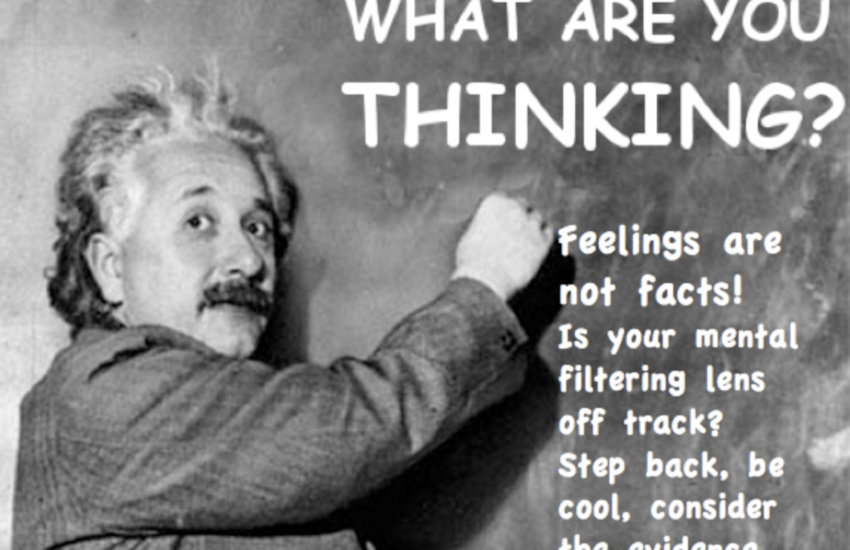Luck, Coincidence And The Elect.
A lot of things in our lives just seem to happen. People often refer to these things as luck or coincidence, both of which can be good or bad. However, this isn’t true. From something as important as leaving your home at the very moment you do, which means you were one second further down the road when a passing car swerved into your lane a moment after you passed by, to something as simple as the flip of a coin, we know these things aren’t determined by simple chance. As Catholics, we can say that we were in the right place at the right time, or in the wrong place at the wrong time, but we could more clearly say, it was all in God’s time or in God’s plan.
Does this mean that everything is predestined and that we are merely chess pieces being moved to the next place on God’s chess board whenever He likes? No. While God’s hand is in everything, we are not simply inanimate things which depend on a totally external force to move, think, and act. We have free will, which means that although God has a “Plan A” for each one of us, He has given us the freedom to follow His plan, or to make billions of little modifications and calculations to that plan and then act according to our own will.
To a Calvinist, this sounds as ridiculous as it does to an atheist. To Calvinists, especially Reformed Calvinists, the twenty century Catholic teaching on free will and predestination, is incompatible with the much more recent Calvinist tradition of double predestination. In Reformed Calvinism, which comes from certain teachings of John Calvin, predestination means that God predestines certain events and causes certain people to accomplish them. That kind of sounds like a chess piece, right? Not only that, Reformed Calvinists believe that God has specifically excluded certain people or groups of people from eternal salvation. In this line of distorted thinking, God predestines Johnny to carry out certain acts in his life, which Johnny will do because Johnny lacks the freedom of his will to not do those acts. At the end of his life, Johnny, having accomplished the acts God predestined for him, then goes to Heaven, because Johnny was also a member of the elect. Even if Johnny has done some seriously sinful things in his life (which all of us typically do as we stack up our years on this earth). Susie, on the other hand, was not predestined to do certain things, and she was not a member of God’s elect. Therefore, she will not go to Heaven when she dies, regardless of her surrender to God, regardless of any good things she has done in her lifetime, and regardless of the absence of serious sin on her soul. This is a demonstration of the “limited atonement” of Reformed Calvinist teachings. It sounds harsh doesn’t it? It is, and many a Reformed Calvinist will spend a lot of time trying to take the sharp edges off of the teaching to try and make it sound a lot friendlier, but in the end, the Reformed Calvinist teaching interprets God as stern, unfair, uncaring, and downright cruel. Calvinists actually believe that God was pleased to predestine some people to His wrath. The apparent purpose of this is so that God’s glory and justice might be made known to all. This of course, makes no sense when you think about it, because in a faith where God has predestined people and made some people the elect and other not the elect, what good does it do to rub His “glory and justice” in the fact of those who are predestined to Hell? Why give a victory lap to those who had no choice but to win the race? Is it any wonder that there are not many Reformed Calvinist churches around?
Therefore, if you have a conversation about your faith with a Calvinist, you can help them wrap their heads around God’s love by pointing out that God wants everyone to be saved and that we are all predestined for Heaven because of God’s love. A devoted Calvinist, especially a devoted Reformed Calvinist will dig in and try to explain that away, but a Calvinist who is open to God’s Word will be interested in that explanation and want to learn more. You can draw their attention to 1 Timothy 2:3-6 which states:
This is right and is acceptable in the sight of God our Savior, who desires everyone to be saved and to come to the knowledge of the truth. For there is one God; there is also one mediator between God and humankind, Christ Jesus, himself human, who gave himself a ransom for all.
You can then ask them, “what part of ransom for all do you not understand?” You should also ask them about the part where it states that God desires everyone to be saved.
A devoted Reformed Calvinist will go to extreme lengths to ignore the obvious point of this Scripture passage. He or she may even offer several Bible verses in support of their misinterpretation, but 100 verses taken out of context do not erase 1 Timothy 2:3-6. It is not as if God screwed up a few verses here and there, so He inspired Paul or other authors to write verses to correct the poorly inspired ones. Isn’t one verse enough for God? Or does God need to write things twice or three time in Scripture before we decide that He really means it?
1 Timothy 2:3-6 is about as explicit and straightforward as anything in Scripture, and the entirety of Scripture supports it, especially when read in context.
Just as there is no such thing as luck or coincidence, in Christianity, there is no such thing as the Reformed Calvinist tradition of the elect or of the Reformed Calvinist teaching of predestination. The only true teaching on predestination is the Catholic teaching. What is the Catholic teaching? It is stated in 1 Timothy 2:3-6. See also Romans 8:29–30 and the Catechism of the Catholic Church, including paragraphs 600 and 1037.




